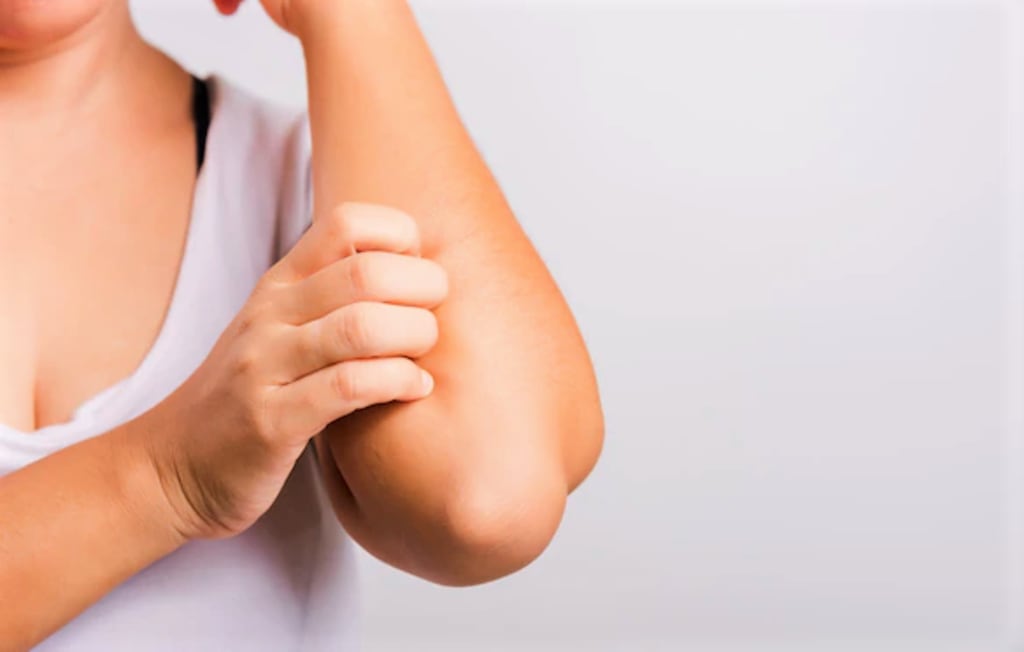
Why Do We Itch?
Picture this: you're standing ready inside the goal, fully focused on the game, when suddenly, an intense itch on the back of your head demands your attention. We've all experienced the annoyance of inconvenient itches, but have you ever wondered about the reasons behind these pesky sensations?
On an average day, a person may experience dozens of individual itches, triggered by various factors like allergic reactions, dryness, or certain diseases. Some itches seem to arise for no apparent reason at all or even just from talking about itching. You might be scratching your head now, just thinking about it! Let's explore one of the most common sources of itching: bug bites. When a mosquito bites you, it injects an anticoagulant compound into your body to prevent blood clotting. We are mildly allergic to this compound, which triggers the release of histamine, a chemical that causes our capillaries to swell. This increased blood flow accelerates the body's immune response to the perceived threat, resulting in swelling, similar to how pollen can make our eyes puff up. Histamine also activates the nerves involved in itching, leading to the urge to scratch those bug bites.
However, the itch sensation itself remains somewhat of a mystery. Much of what we do know comes from studying itch mechanics in mice. Researchers have found that itch signals in their skin are transmitted by a specific subclass of nerves associated with pain. These dedicated nerves produce a molecule called natriuretic polypeptide B, which triggers a signal sent up the spinal cord to the brain, creating the feeling of an itch.
When we scratch, the action of our fingernails on the skin generates a low-level pain signal that overrides the itching sensation, providing a sense of relief. But does the itch serve any evolutionary purpose, or is it merely there to frustrate us? The leading theory suggests that our skin has evolved to be acutely aware of touch, equipping us to deal with potential risks from the outside world. Our automatic scratching response, for instance, helps dislodge anything harmful that might be lurking on our skin, such as a harmful sting, a biting insect, or the tendrils of a poisonous plant. This might explain why we don't experience itching inside our bodies, like in our intestines, where external threats are absent. Imagine how maddening that would be! In some cases, disruptions in the pathways responsible for itching can lead to excessive and harmful itching. One extreme example is a psychological condition called delusory parasitosis, where individuals believe their bodies are infested with mites or fleas, causing them to itch incessantly. Another phenomenon, called phantom itching, can occur in patients who've had amputations.
Due to severe damage to the nervous system, the body's normal nerve signaling gets confused, resulting in sensations in limbs that are no longer there. Fortunately, doctors are now finding ways to treat these itching anomalies. In the case of amputees, mirrors are utilized to reflect the remaining limb, and the patient scratches the reflection, creating an illusion that tricks the brain into believing the imaginary itch has been satisfied. Surprisingly, this technique works!
Itchy skin is also called pruritus (proo-RIE-tus). Itchy skin is often caused by dry skin and is common in older adults, as skin tends to become drier with age.
Depending on the cause of your itchiness, your skin may look no different than usual or it may be inflamed, rough or have bumps. Repeated scratching can cause raised thick areas of skin that might bleed or become infected.
Many people find relief with self-care measures such as moisturizers, gentle cleansers and lukewarm baths. Long-term relief requires identifying and treating the cause of itchy skin. Common treatments are medicated creams, moist dressings and anti-itch medicines taken by mouth.
Additionally, researchers are exploring the genes involved in itching and developing treatments to block the itch pathway in extreme cases. For those who have experienced an unscratchable itch, you're not alone; even the renowned poet Dante wrote about a section of hell where people were punished by being left in pits to itch for all eternity.
About the Creator
ABC Concepts
In this beautifully woven tapestry of creativity, I cherish words, colors, & forms. As a writer, vibrant threads of inspiration fuel every piece of work.





Comments
There are no comments for this story
Be the first to respond and start the conversation.